
Brittany Higgins and Bruce Lehrmann arriving at the ACT Supreme Court for the start of the trial, which ended in a mistrial and was then abandoned. Photos: Michelle Kroll/Albert McKnight.
The decision by police to conduct a second ‘evidence-in-chief’ interview of Brittany Higgins’ complaint, the release of confidential documents to lawyers before the accused, Bruce Lehrmann, entered a plea, and the right of the Victims of Crime Commissioner to support someone as a ‘victim’ before a court case are all elements to be examined by an inquiry into the handling of the case.
The Board of Inquiry chair, Walter Sofronoff KC, held a preliminary hearing on Monday (17 April).
Counsel assisting Erin Longbottom KC said the inquiry would look into the conduct and motivations of three parties: ACT Policing (under the AFP), the Director of Public Prosecutions (DPP) Shane Drumgold SC and his office, and the ACT Victims of Crime Commissioner Heidi Yates.
Ms Longbottom outlined the inquiry had been triggered by a letter from Mr Drumgold to ACT Policing Chief Police Officer Neil Gaughan, which had been released under Freedom of Information legislation.
“It’s important to emphasise this is not an inquiry into the allegations made by Ms Higgins,” Ms Longbottom said.
The circumstances surrounding the letter’s release will also be examined.
In terms of police conduct and motivations, Ms Longbottom outlined the investigation had taken place during a time of “intense scrutiny” by the media due to the alleged crime’s location and the context of the Me Too movement.
She submitted this brought into question the threshold for charging and continuing with such a charge through the criminal justice system.
“Public confidence in the criminal justice system is essential to maintaining democracy,” Ms Longbottom said.
“[Mr Sofronoff] if you discover any police officer failed to act in accordance with their duty [or breached their duty] … you are required to investigate their … motives.”
Ms Longbottom outlined the investigation into Ms Higgins’ claims had two stages: the first from 1 April 2019 when she filed her first complaint to AFP officers located at Parliament House and subsequent conversations with police until she dropped the matter on 13 April; and early February 2021, when Ms Higgins asked for her complaint to be reactivated.
She said Ms Higgins had emailed this request to officers on 5 February and had been told on 6 February it couldn’t proceed until another evidence-in-chief interview was held.
The second interview wasn’t held until 24 February, which was after Ms Higgins’ claims had been published by The Project and news.com.au.
“You will hear evidence that, from the outset, [meetings between police and the DPP] were beset by tension,” Ms Longbottom submitted.
She said Mr Sofronoff would need to consider whether it was proper for police to have held a second evidence-in-chief interview, the confusion around laying of charges, and the delivery of the brief of evidence to Mr Lehrmann’s lawyers when he was charged in August – but before he had entered a plea – which included “counselling notes” which were prohibited from publication without the court’s approval.
In terms of the conduct of the DPP, Ms Longbottom said Mr Sofronoff would need to consider whether Mr Drumgold had failed or breached his duties in his decision to commence and discontinue criminal proceedings against Mr Lehrmann.
Ms Longbottom clarified the decision to prosecute was “discretionary”.
She also said the inquiry would need to look into the DPP’s conduct before, during and after the trial, his decision to include the counselling notes in the brief, and his decision to not disclose information by then defence Minister Linda Reynolds’ chief of staff Fiona Brown.
As for the Victims of Crime Commissioner, Ms Longbottom outlined the inquiry would have to consider whether Ms Yates acted in accordance with her relevant statutory framework and the intersections of this framework with an accused person’s right to be presumed innocent when appearing in the courts.
“[Ms Yates] is entitled to be present at a hearing in court,” Ms Longbottom said.
Mr Sofronoff said he understood the issues around Ms Yates’ presence at the trial related to how “somebody is referred to as a victim”.
“It seems to me, a person who has suffered harm because of an offence is a matter for the Commissioner to decide rather than wait for [the justice system] to determine,” he said.
“What is the presumption of innocence … [and] what bearing does it have outside the criminal justice system … [especially when] in part the discourse is promoted by the media?”
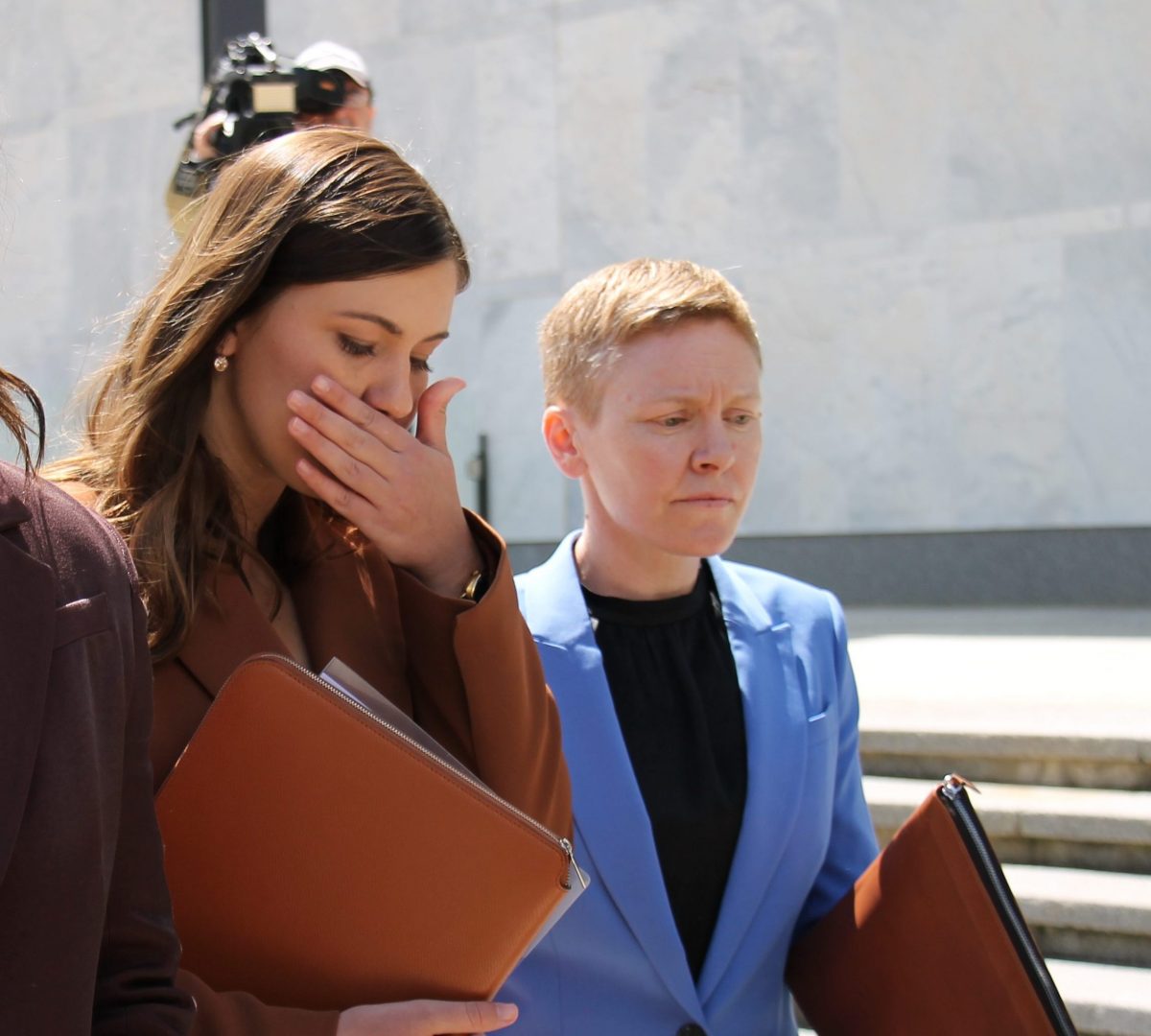
Throughout the trial of Bruce Lehrmann, Brittany Higgins was supported by ACT Victims of Crime Commissioner Heidi Yates. Photo: Albert McKnight.
Mr Sofronoff put this issue to Ms Yates’ legal representative, Dr Peggy Dwyer.
“You act for people on the footing that they tell you what they tell you … [you use] their version,” he said.
“There’s obviously room for problems to arise.”
Dr Dwyer said the eligibility for someone to receive support was outlined in the legislation.
“It is not dependent on someone being convicted of a crime,” she said.
The Board of Inquiry is expected to conduct four weeks of hearings, beginning 1 May.
Ms Higgins had accused Mr Lehrmann of sexually assaulting her in Parliament House in March 2019.
The case ended in a mistrial on 27 October 2022 before it was dropped a few months later.
Mr Lehrmann has maintained his innocence.
Police conduct over the case has previously been referred to an integrity body while Ms Yates’ conduct was examined by the ACT Government during annual reports hearings last November.













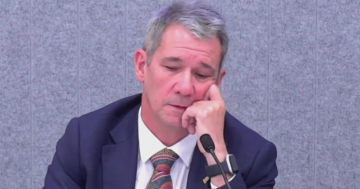
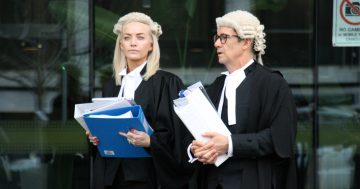

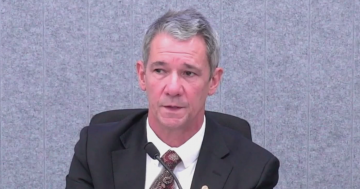



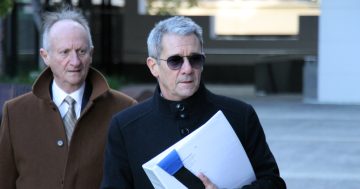

Just as I thought. Crying about “windfall gains” being handed out to developers, but collected… View